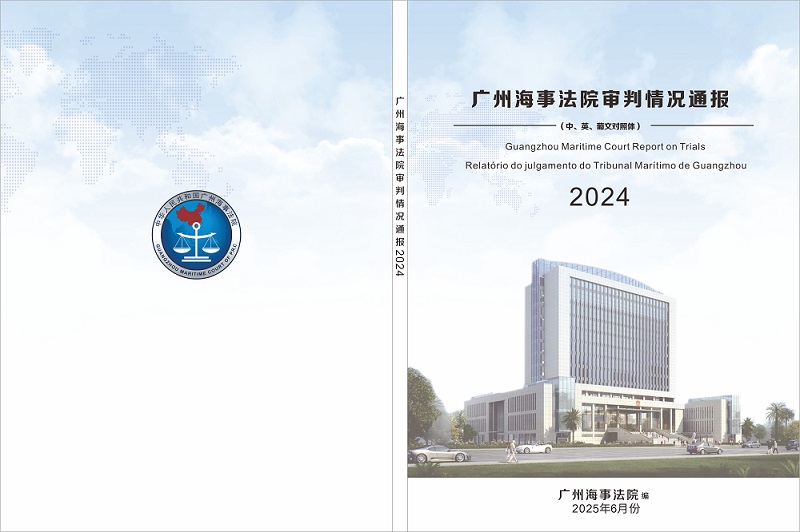GZMC Releases 2024 White Paper on Maritime Trials

On June 3, 2025, the Guangzhou Maritime Court (GZMC) issued its 2024 Annual Report on Maritime Trials, a comprehensive white paper detailing the Court's commitment to implementing Xi Jinping Thought on the Rule of Law. Themed "Justice and Efficiency," the report underscores GZMC's diligent execution of its maritime judicial responsibilities and highlights innovative measures to support China's maritime power strategy, the Belt and Road Initiative, the development of the Guangdong-Hong Kong-Macao Greater Bay Area, and the establishment of a "New Maritime Guangdong." This marks the ninth consecutive year the white paper has been published in Chinese, English, and Portuguese.
In 2024, GZMC received 3,546 new cases, a 2.53% decrease from the previous year, and resolved 3,651 cases, achieving a resolution rate of 90.19%. Appeals totaled 765, down 14.24% year-on-year, with a retrial application rate of 0.499%, surpassing the provincial average. The Court enforced judgments amounting to RMB 573 million, with a 13.08% increase in enforcement completion compared to the prior year. By enhancing its integrated mechanism of "pre-litigation mediation + judicial confirmation + enforcement," the Court successfully mediated 555 cases, including 369 resolved before litigation, significantly reducing the burden on involved parties. With a focus on emerging industries such as offshore wind power, marine ranching, and port construction, GZMC addressed new legal challenges by prudently resolving 69 related disputes. Notably, it adjudicated cases involving the "Bay Area Hengzhou", an intelligent deep-sea aquaculture platform, advancing marine ranching initiatives. Additionally, the Court efficiently handled disputes over the detention of tower equipment for offshore wind farms, ensuring the progress of key provincial projects and fostering offshore new quality productive forces. To strengthen collaboration between administrative and judicial bodies, GZMC issued judicial recommendations to maritime authorities in a bid to promote cooperative governance and development. It also resolved cases involving sea area usage for deep-sea aquaculture in Suixi County. These efforts have supported lawful maritime administration, contributed to broader maritime governance, and advanced marine ecological civilization.
The white paper addresses critical legal issues, including seafarers' injury rights, multimodal transport, maritime administrative adjudication, cross-border e-commerce logistics disputes, port construction regulations, and enforcement procedures. It provides targeted countermeasures and policy recommendations to address these challenges effectively.

 粤公网安备44010502002715
粤公网安备44010502002715